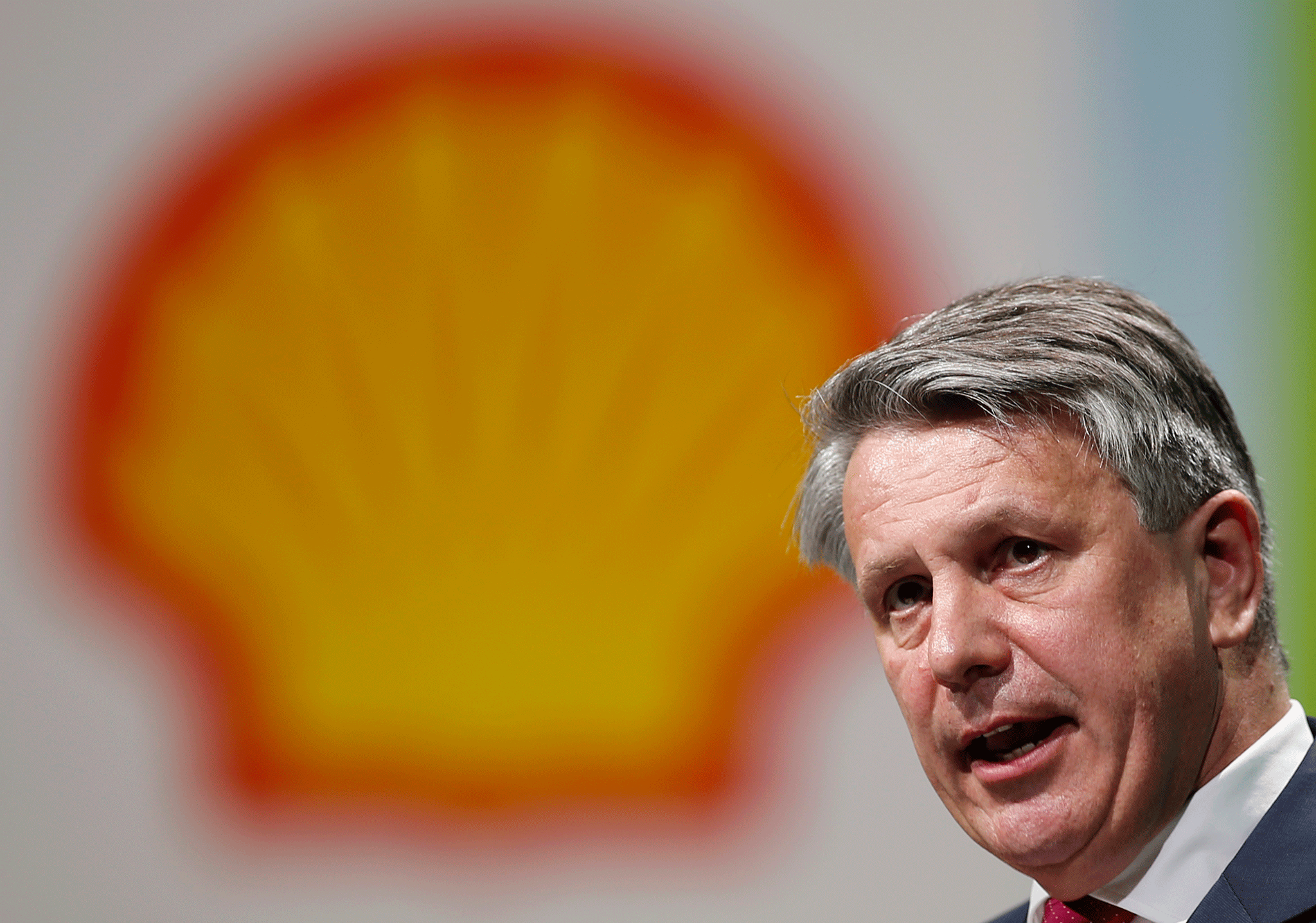World's biggest oil companies urge Donald Trump to stay in Paris climate change agreement
The president said he will make a decision after the G7 meeting later this month

Several of the world's largest fossil fuel companies are telling Donald Trump to stay in the Paris Agreement on climate change.
Ben Van Beurden of Royal Dutch Shell told NPR that he wants the US to commit to the historic climate change agreement, signed by nearly 200 countries in December 2015, so that there is “predictability, consistency, and a level playing field” from which companies in his sector can operate going forward.
Mr Trump has waffled on staying in the agreement and announced he would wait until after the group of seven (G7) meeting in Italy on later this month to make a decision.
Andrew Logan, Director of the Oil and Gas Program at sustainability non-profit Ceres that works with large investors, told The Independent that “shareholder pressure is certainly part of the equation” behind Mr Van Beurden’s statement.
They are not the only ones to put pressure on the industry and the US. Many private sector investors, especially managers of multi-billion dollar pension funds and retailers, have called on the president to understand climate change and the purpose of the agreement using his much-touted business skills.
“It is clear that investors expect oil companies to have a credible plan for managing the low-carbon transition, and engaging on public policy is an important part of that,” Mr Logan said.
In short, stable US policy and a favourable view of the US in the world is good for Shell’s business.
Mr Logan said that though Ceres supports large investors like pension funds to divest their money away from oil and gas company stock, some investors prefer this type of pressure as shareholders.
“It is a means to actually change company behaviour, and to reduce risk for the investor. Simply selling a stock or divesting from a sector doesn’t do anything to change behaviour.”
He explains that the US pulling out of the Paris Agreement could result in “policy chaos, which [oil and gas CEOs] definitely do not want."
Support from Mr Van Beurden and others in the industry like Exxon Mobil, BP, and Chevron for the US staying in the Paris Agreement is not wholly environmentally-friendly, however.
Senator Sheldon Whitehouse commented that though CEOs may be pushing a more environmentally-friendly public relations message, lobbyists for the oil and gas industry’s trade associations are doing the opposite privately in the halls of Congress.
“You get to look like you care, at the same time you get to make sure nothing happens to you existing business model,” Mr Whitehouse said.
The Paris Agreement text does not mention “fossil fuels” in any capacity, which some have said is the influence of the industry over the United Nations negotiations that led up to the signing of the agreement. Some energy companies have even paid some of the costs for the annual UN meetings, their logo splashed all over conference venues to signal sponsorship. However, they have not been allowed in negotiating rooms with country delegates.
In October 2016, the industry - somewhat quietly - established the Oil and Gas Climate Initiative (OGCI).
Ten oil and gas companies - including Shell - came together to pledge $1 billion over the next 10 years to research carbon emissions reduction technology.
The funds from OGCI are meant to go towards four key areas: carbon capture and storage (CCS), natural gas, industrial energy efficiency, and transportation energy efficiency.
Though it may sound like progress, there are a few issues with the initiative.
Nearly half of the money will be going towards CCS, a controversial method by some environmental experts.
The technology allows companies to extract and burn fossil fuels, but instead of releasing them into the atmosphere CCS-enabled facilities “capture” the carbon emissions and store them, usually in containers underground.
None of the $1bn will be put towards development of solar, wind, or any other renewable energy technology.
Mr Logan said that many investors are wary of CCS because it is expensive and the timeline of when CCS will become reliable and cost-effective is uncertain.
With every year being deemed the “hottest on record,” timing is an issue for environmentally-conscious investors. Also of note is that new money in renewable energy topped new investments in the oil and gas sector for the first time in 2015, reaching approximately $350 billion.
During the 2016 campaign and in the initial days of his presidency, Mr Trump repeatedly remarked that he wanted to “cancel” the agreement. He has also called climate change a “hoax” perpetrated by the Chinese. He also hired former Exxon Mobil CEO Rex Tillerson as Secretary of State and vocal climate-denier Scott Pruitt to head the US Environmental Protection Agency - the budget of which he is proposing be cut by nearly 28 per cent.
His stance seemed to soften after a face-to-face meeting with Chinese President Xi Jinping. China is now a leader in global investment in renewable energy.
Mr Trump is set to attend the G7 meeting from 26-27 May in Sicily, Italy.
Join our commenting forum
Join thought-provoking conversations, follow other Independent readers and see their replies
Comments
Bookmark popover
Removed from bookmarks